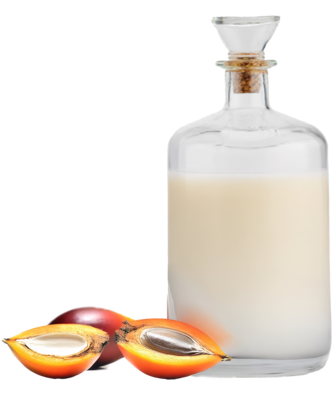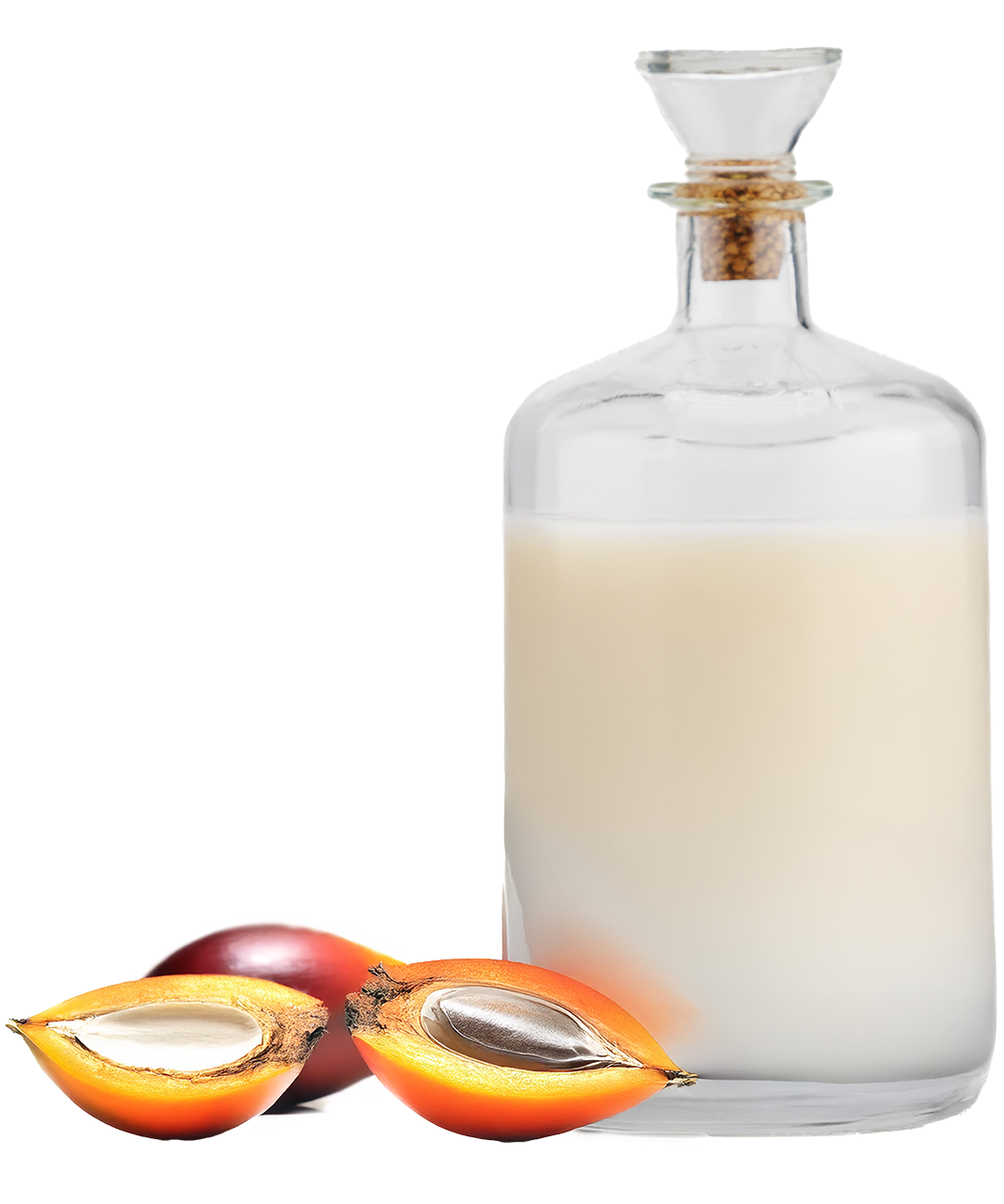Palmolein
refined IV 64 SG CU-RSPO SCC-818895
| Certificates | RSPO, Kosher |
| Article number | 110077 |

| Certificates | RSPO, Kosher |
| Article number | 110077 |
The harvest of the oil palm begins as soon as the fruits reach their characteristic orange-reddish color, which signals their ripeness. This year-round harvesting process is mainly carried out manually: Workers use machetes or sickle blades on long poles to cut the bunches of fruit from the palms. Once the bunches have fallen to the ground, they are collected and loaded onto trucks. The freshly harvested palm fruits are transported to the oil mill, where they are treated with steam under high pressure. This step removes unwanted microorganisms and makes it easier to separate the fruit from the bunches by loosening it up. The water content of the fruit is also reduced, which makes the pressing process more efficient. The separated fruit is then pressed, resulting in a mass of pulp and nuts. The nuts are separated and used for further processing into palm kernel fat in order to fully utilize all of the fruit's components. The remaining pulp mass is cleaned of water and natural suspended matter in a further step.
The crude oil obtained is now subjected to a refining process, which causes it to lose its red color. The crucial part of palm olein production is the subsequent fractionation, in which the colorless oil is first cooled, causing it to break down into solid and liquid parts. The liquid fraction, the palm olein, is then separated from the solid fraction, the stearin. Upon arrival in Germany, our refined palm olein undergoes a final laboratory analysis in our DIN ISO 17025 accredited laboratory to ensure that it meets our strict quality and purity standards. Our refined palm olein is RSPO-SG certified, which means that it is produced under sustainable practices according to the guidelines of the Roundtable on Sustainable Palm Oil. The addition "SG" stands for "segregated" and guarantees that our palm oil is consistently separated from non-certified palm oil.

Cosmetics
Food
25
kg
Bag
General durability: box 12 months, drum 18 months
| Nutritional value | (per 100g) |
| Energy | 3,700 kJ / 900 kcal |
| Fat | 100 g |
| Saturated fatty acids | 48 g |
| Monounsaturated fatty acids | 41 g |
| Polyunsaturated fatty acids | 11 g |
Fatty acids ratio
Composition
| C16:0 Palmitic acid | 39.3 – 47.5 % |
| C18:1 Oleic acid | 36 – 44 % |
| C18:2 Linoleic acid | 8 – 12 % |
Request now free of charge and without obligation from Gustav Heess. We deliver Palm oil ...
We offer Palm oil in the following packaging units: